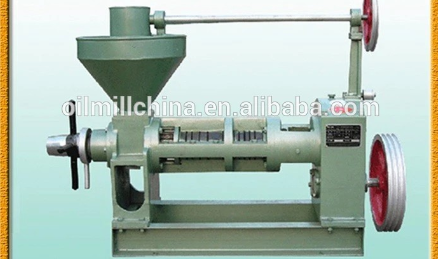Dec . 13, 2024 06:30 Back to list
press screw of oil expeller factories
Understanding the Press Screw of Oil Expeller Factories
In the modern era of industrialized food production, the efficiency and effectiveness of oil extraction from various seeds and nuts have taken center stage
. Among the critical components of oil expeller factories is the press screw, which plays a pivotal role in determining the quality and quantity of oil extracted.An oil expeller is a mechanical device that crushes seeds and nuts to extract oil. The press screw, which is a spiraled auger, is the heart of this operation. It applies pressure to the raw materials, thereby facilitating the extraction of oil while simultaneously filtering out the cake— the residue left after oil extraction. The design and functionality of the press screw are crucial for the efficiency of the oil extraction process.
The press screw operates by a principle known as mechanical advantage. As the raw materials enter the expeller, they are guided along a spiral path. The screw compresses these materials, which increases the temperature and pressure within the chamber. This combination of heat and pressure breaks down the cellular structure of the seeds or nuts, allowing the oil to flow more freely. The strength of the press screw is vital; it must be robust enough to withstand high-pressure conditions and long hours of operation without losing its effectiveness due to wear and tear.
Moreover, the geometry of the screw is meticulously designed to optimize oil yield. Variations in the pitch, diameter, and length of the screw can significantly influence the oil extraction efficiency. A well-engineered press screw ensures that the materials are adequately crushed and that the oil is effectively separated from the solid components. This design consideration directly impacts not only the yield but also the quality of the oil produced, making it suitable for various culinary and industrial applications.
press screw of oil expeller factories

The materials used to manufacture press screws are equally important. High-carbon steel or other durable alloys are commonly used to provide longevity and resistance against abrasive materials. Advances in technology have also led to the development of specialized coatings that can further enhance the durability of the screw, reducing downtime associated with maintenance and replacement.
Another significant factor in the efficiency of oil expeller factories revolves around the operational parameters of the press screw. Variations in temperature, moisture content, and the type of raw materials impact the extraction process. For instance, seeds with higher oil content often yield more oil, but they might require different settings, such as temperature and pressure adjustments, to maximize output. The ability to fine-tune these parameters is critical for manufacturers aiming to achieve the highest extraction rates while maintaining quality.
The role of the press screw in the sustainability of oil expeller factories cannot be overlooked either. Efficient extraction processes reduce waste and energy consumption. As more industries focus on sustainable practices, innovations in screw design and machinery will likely be at the forefront of discussions pertaining to environmental impact.
In conclusion, the press screw is a fundamental component that defines the efficiency and effectiveness of oil expeller factories. Through thoughtful design and engineering, manufacturers can enhance oil yield while ensuring the quality of the final product. As technology continues to advance, the oil extraction process will become even more efficient, paving the way for sustainable practices in the food production industry. As consumers increasingly seek high-quality, responsibly sourced oils, investing in cutting-edge oil expeller technology remains vital for producers.
-
Oil Processing Equipment - High-Efficiency Flaking Machine
NewsJul.25,2025
-
High-Efficiency Peanut Oil Refined Machine for Quality Oil Production Leading Exporters & Companies
NewsJul.08,2025
-
High Efficiency Sunflower Seed Oil Press – Leading Cooking Oil Press Machine Factories & Suppliers
NewsJul.08,2025
-
High-Efficiency Soybean Oil Press Machine – Leading Exporters & Reliable Companies
NewsJul.07,2025
-
High-Efficiency Seed to Oil Extractor – Reliable Extraction Machinery for Your Business
NewsJul.07,2025
-
High-Quality Pressing Screw of Oil Expeller for Efficient Oil Extraction Leading Exporters & Manufacturers
NewsJul.06,2025
